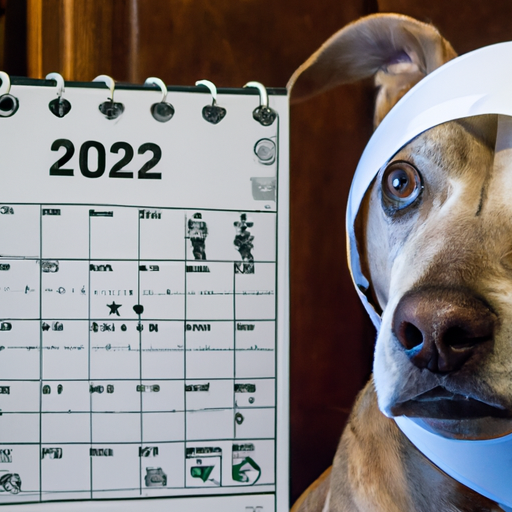As a loving caregiver to your furry friend, the health and wellbeing of your dog is likely at the forefront of your mind. One important aspect of their care includes deciding when and if to have your male dog neutered, also known as ‘getting fixed.’ This procedure has various health and behavioral benefits, but it’s crucial to determine the right time to ensure your pet’s optimal health.
In this comprehensive guide, we’ll uncover the most suitable age for male dogs to get fixed, potential benefits and complications, and frequently asked questions on the subject.
Key Takeaways
- Male dogs can usually get neutered as early as eight weeks old, but some veterinarians recommend waiting until they are six months old.
- Neutering has various health and behavioral benefits, including reduced aggression and decreased risk of certain health issues.
- The procedure is generally safe, but there can be potential complications such as discomfort, infection, and complications from anesthesia.
Table of Contents
- Understanding Neutering
- The Optimal Age for Neutering
- Benefits of Neutering
- Potential Complications
- Preparing Your Dog for the Procedure
- Post-Procedure Care
- Frequently Asked Questions
Understanding Neutering
Neutering, or castration, is a surgical procedure that involves removing a male dog’s testicles. This procedure effectively prevents the dog from reproducing and significantly reduces the production of testosterone.
Over the years, neutering has become a common practice for pet owners and is often recommended by veterinarians due to its numerous health and behavioral benefits. You can read more about the procedure at the American Veterinary Medical Association.
The Optimal Age for Neutering
As a general rule, male dogs can be neutered as early as eight weeks old. However, many veterinarians recommend waiting until the dog is at least six months old. Some factors to consider include the dog’s breed, size, and overall health. Larger breeds may benefit from waiting until they are fully grown before undergoing the procedure. You can find more detailed information on this topic at OneTopDog.
Benefits of Neutering
Neutering your male dog has several potential benefits:
- Reduced aggression: Neutered dogs are often less aggressive and territorial, making them easier to manage and less likely to get into fights with other dogs.
- Decreased risk of health issues: Neutering can reduce the risk of certain health problems, including testicular cancer and prostate issues.
- Behavioral improvements: The procedure can help curb undesirable behaviors such as marking territory and roaming.
Potential Complications
Like any surgical procedure, neutering carries a small risk of complications, such as discomfort, infection, and complications from anesthesia. However, these are relatively rare, and the procedure is generally considered safe.
Your veterinarian will be able to discuss these potential risks in more detail and help you weigh the benefits and risks to make the best decision for your pet.
Preparing Your Dog for the Procedure
Before the procedure, your dog will need a thorough health check to ensure he is healthy enough for surgery. Your veterinarian will provide specific instructions on food and water restrictions before the procedure.
On the day of the surgery, it’s important to keep your dog calm and comfortable. Bringing his favorite toy or blanket can help provide comfort and reduce anxiety.
Post-Procedure Care
After the procedure, your dog will likely need some time to recover. This involves rest, a diet of easy-to-digest foods, and regular check-ups to monitor healing.
It’s crucial to prevent your dog from licking or biting at the surgical site, which can lead to infection. An Elizabethan collar, also known as a cone, might be necessary to prevent this behavior. You can find more tips on post-procedure care at OneTopDog.
Frequently Asked Questions
1. Can neutering change my dog’s personality?
Neutering can reduce certain behaviors driven by testosterone, such as aggression and the urge to roam. However, it does not change a dog’s fundamental personality traits.
2. Will neutering cause my dog to gain weight?
Neutering can slow a dog’s metabolism, which can lead to weight gain if not managed with a balanced diet and regular exercise.
3. How long does the procedure take?
The procedure typically takes about an hour, but your dog will likely need to stay at the veterinarian’s office for a few hours for observation.
Understanding when and how to neuter your male dog is a crucial aspect of responsible pet ownership. By being informed and working closely with your veterinarian, you can ensure the best possible health and wellbeing for your beloved pet. You can read more about pet health and care at OneTopDog.



